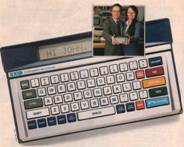[IP] more on In Silicon Valley, a Man Without a Patent
Begin forwarded message:
From: Bob Frankston <Bob2-19-0501@xxxxxxxxxxxxxxxxxx>
Date: April 15, 2006 11:26:03 PM EDT
To: dave@xxxxxxxxxx, ip@xxxxxxxxxxxxxx
Cc: "'John Markoff'" <johnmarkoff@xxxxxxxxx>, "'Dan Bricklin'"
<danb@xxxxxxxxxxxx>
Subject: RE: [IP] In Silicon Valley, a Man Without a Patent
Nice to know Geoff is back in the US.
-------------------------------------
You are subscribed as roessler@xxxxxxxxxxxxxxxxxx
To manage your subscription, go to
http://v2.listbox.com/member/?listname=ip
Archives at: http://www.interesting-people.org/archives/interesting-people/

We should also remember Bob and Hoyle Doyle (http://
www.skybuilders.com/Users/Bob/Bios/BioPics.html) who shipped the IXO
which was a small brick with a keyboard and a 16 character display.
What made it especially interesting was that it could receive alpha
messages over the paging network -- in fact, the wireless paging
protocol was called the IXO protocol for a long time. I used the IXO
as an email terminal but it was more computer than pager.
More to the point if you think of the number of ideas that were
“invented” in the first few decades imagine the damage that would
have happened had there been a rush to patent everything. I put the
words “invented” in quotes since I think of the process as more one
of discovery and most were seen as just steps as part of larger steps.
What if a patent on token rings prevented any other work on networks,
or SNOBOL preempted string processing in programming languages? Or if
patenting wireless messages prevented the use of 802.11 for networks?
Even if the patents were eventually overturned the only winners would
be lawyers.
******* [ on the other hand, if I had filed a patent on our token
ring, I would have prevented IBM from taking our work and stalling 6
years before they acknowledged the source of their ring. djf]
This is one reason I’m very wary of “invention factories” that
attempt to preemptively patent ideas. Today’s software tools give
many people the opportunity to discover new ideas and build on them.
There is a vast yet subtle difference between protecting unusual
inventions and preemptively locking up vast swaths of opportunity.
If Dan and I had patented VisiCalc what would we have prevented? That
said if we had today’s patent system we would have done so. Yet I
think I live in a world that is better because of what others have
been able to contribute without impediment. But if you know of a good
patent lawyer I’ve got lots of ideas that …
-----Original Message-----
From: David Farber [mailto:dave@xxxxxxxxxx]
Sent: Saturday, April 15, 2006 18:50
To: ip@xxxxxxxxxxxxxx
Subject: [IP] In Silicon Valley, a Man Without a Patent
I kno him well and ued his stuff early djf
Begin forwarded message:
From: Jonathan B Spira <jspira@xxxxxxxxx>
Date: April 15, 2006 7:03:45 PM EDT
To: dave@xxxxxxxxxx
Subject: In Silicon Valley, a Man Without a Patent
Dave
IP readers will learn from this tale.
Regards/Mit freundlichen Grüßen/Szívélyes üdvözlet/Cordialement/
Cordiali saluti/Saludos/Vänliga hälsningar
/s/ Jonathan
Jonathan B. Spira
CEO and Chief Analyst
Basex, Inc.
y jspira@xxxxxxxxx
( +1 (212) 725-2600 x113
8 http://www.basex.com
April 16, 2006
In Silicon Valley, a Man Without a Patent
By JOHN MARKOFF
MENLO PARK, Calif.
GEOFF GOODFELLOW is a Silicon Valley entrepreneur who came up with an
idea that resulted in a $612.5 million payday. But he will never see
a penny of it. He remains little known even in Silicon Valley and,
perhaps most surprising, he doesn't really mind.
And herein lies one of the stranger tales about innovation and money
in the world of technology.
A high-school dropout, Mr. Goodfellow had his light-bulb moment in
1982, when he came up with the idea of sending electronic mail
messages wirelessly to a portable device — like a BlackBerry. Only
back then, there was no BlackBerry; his vision centered on pagers. He
eventually did get financial backing to start a wireless e-mail
service in the early 1990's, but it failed.
So, in 1998, he moved to Prague and bought a bar. While he was there,
the BlackBerry did come along. Tending bar, he believed that everyone
had forgotten that he had initially come up with the idea of wireless
e-mail.
http://www.nytimes.com/2006/04/16/technology/16wireless.html?
_r=1&pagewanted=print
-------------------------------------
You are subscribed as BobIP@xxxxxxxxxxxxxxxxxx
To manage your subscription, go to
http://v2.listbox.com/member/?listname=ip
Archives at: http://www.interesting-people.org/archives/interesting-
people/
-------------------------------------
You are subscribed as roessler@xxxxxxxxxxxxxxxxxx
To manage your subscription, go to
http://v2.listbox.com/member/?listname=ip
Archives at: http://www.interesting-people.org/archives/interesting-people/
